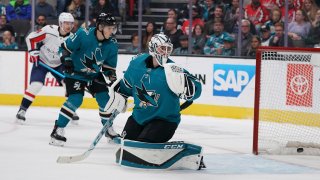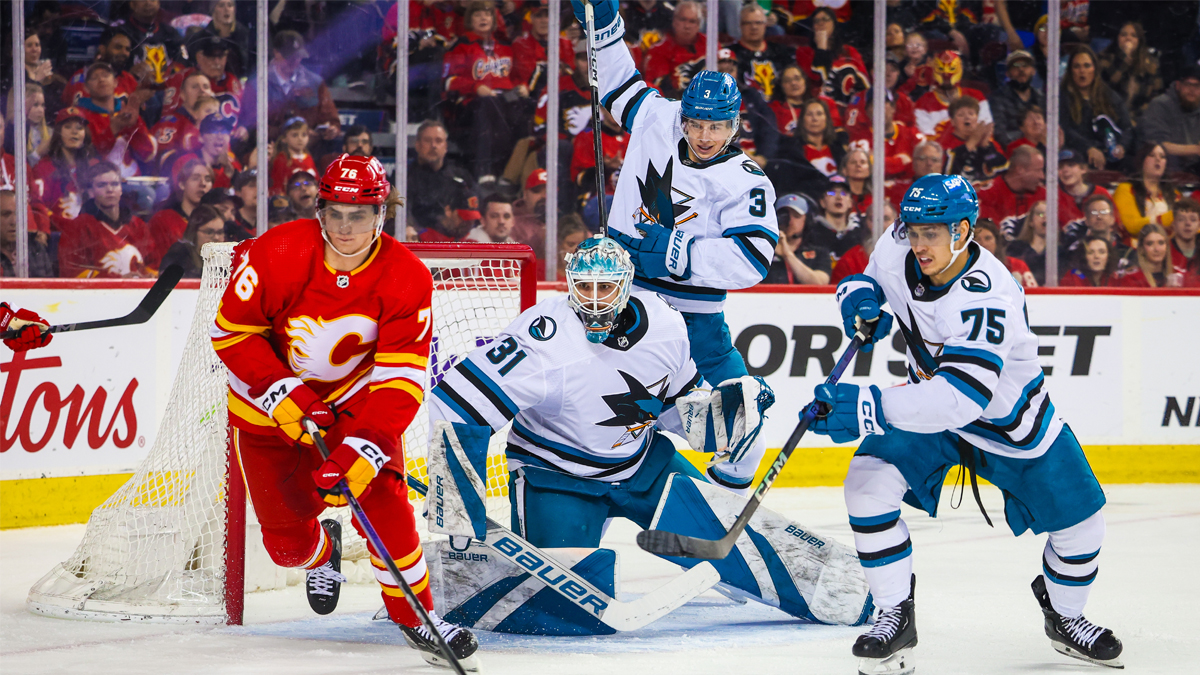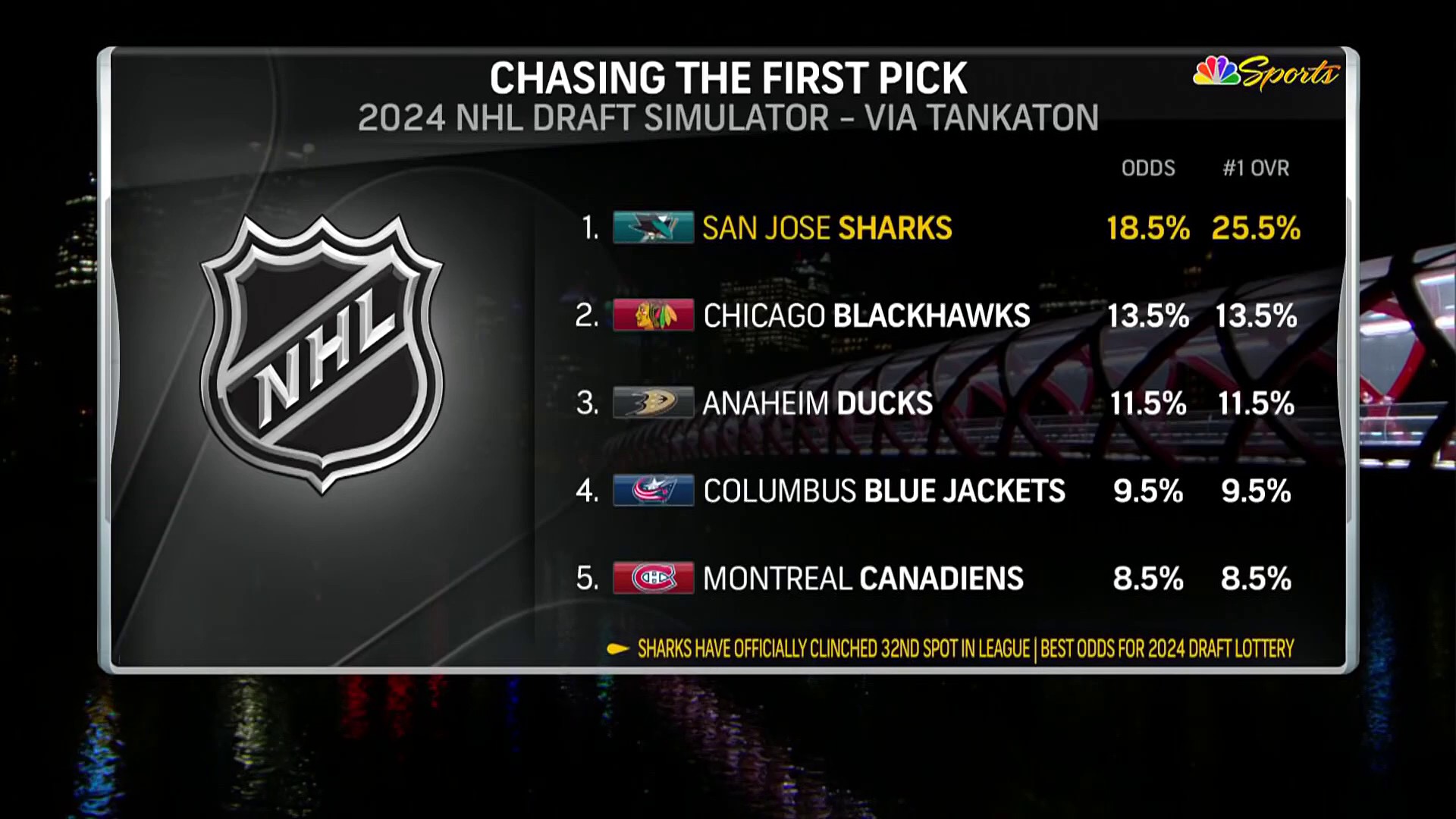
To say the Sharks' season thus far has been a major disappointment would be the understatement of 2020. San Jose is in the midst of its worst season in more than 15 years, and it has been a bumpy ride from the start.
The four consecutive losses to begin the season weren't the final nail in former head coach Peter DeBoer's coffin, but they did set his eventual dismissal in motion. A dismal October was counteracted by an impressive November, but a lengthy losing streak to begin December prompted Sharks general manager Doug Wilson to make a change behind the bench.
San Jose had been performing better under interim head coach Bob Boughner since the switch, but three blowout losses heading into the All-Star break have dried up any momentum the team had generated. The Sharks sit 11 points back of playoff positioning with 32 games left to play and several teams ahead of them to leapfrog. Here are the main three reasons San Jose finds itself in such unusually bad shape:
Stay in the game with the latest updates on your beloved Bay Area and California sports teams! Sign up here for our All Access Daily newsletter.
Goaltending
The most obvious sign that a team's season has taken a wrong turn is a coaching change. The second-most obvious? A goalie switch.
Martin Jones entered the season as the Sharks' No. 1 goalie by default. His playoff experience, combined with his hefty and immovable contract, gave him the leg up on backup netminder Aaron Dell. But not all of that postseason experience has been impressive, and Jones didn't do anything to answer the question marks he entered the current season with. He lost nine of his first 11 starts, and the Sharks have only won one of his last 10. Over those two separate cold streaks, he failed to post a save percentage of .900 or better in 16 of the 21 games.
Other than stopping pucks, consistency is arguably the most important quality in a goaltender, and Jones simply wasn't providing that, nor has he for quite a while. Dell, on the other hand, has been a breath of fresh air since taking over the No. 1 spot, stealing Jones' job and running with it. While Dell's numbers aren't overly impressive since becoming the starter, they're better than Jones', and it's likely Dell's steady presence in net that has given Boughner the confidence to stick with him.
Despite the improved goaltending since the coaching change, the Sharks still rank near the bottom of the league in all of the important metrics. San Jose's cumulative save percentage (.891) ranks third-worst in the NHL, while the team's cumulative goals-against average (3.10) is tied for sixth-worst. And that's not the worst of it. The Sharks' goalies have actually performed substantially better when the team has been shorthanded than they have at even strength.
There are no obvious ways for the Sharks to improve their goaltending situation moving forward, so what you see is likely what you're going to get. If San Jose is going to make a second-half comeback, both Dell and Jones will have to be considerably better than we've seen thus far.
Power play
San Jose Sharks
The Sharks are averaging nearly one fewer goal per game than a season ago, and when you combine that with some substandard goaltending, disaster ensues. Just ask DeBoer.
Some of that offensive drop-off was expected, but San Jose's fall from a power-play juggernaut to its current middling state certainly was not, at least not to this extent. Last season, the Sharks scored at the sixth-highest clip in the league with the man-advantage, scoring on 23.7 percent of their power-play opportunities. This season, that scoring rate has plummeted to 16.7 percent, seventh-worst in the NHL. And that's only half the problem.
Through the first 50 games, San Jose has had only 138 power-play opportunities (2.76 per game), the sixth-fewest in the league. Last season, the Sharks went on the power play 241 times, or 2.94 opportunities per game.
So, not only are the Sharks going on the power play less often, but they're also not being very effective with the opportunities they do get. For a team that has been shorthanded 163 times already (fourth-most in the NHL), that's just asking for trouble.
[RELATED: Sharks mailbag: Is Wilson's job as GM in serious jeopardy?]
Emergence of younger players
When Joe Pavelski, Gustav Nyquist and Joonas Donskoi departed in free agency over the offseason, the Sharks lost 58 goals -- or roughly one-fifth of their 2018-19 season total. It wasn't going to be easy to replace that kind of production, and with little in the way of offseason signings in the forward group, San Jose inevitably was going to be reliant on several of its younger players taking the next step in their development to help fill the void.
Well, that hasn't really happened.
Tomas Hertl, an injury-replacement All-Star, is on pace to score 25 goals after notching 35 a year ago. Timo Meier appeared to make the leap last season when he tallied 30 goals and 66 points, but he has failed to expand upon that promise in the current campaign. Barclay Goodrow might already have set a career-high with eight goals scored and Kevin Labanc is on pace to do the same, but even that improvement hasn't been as considerable as necessary. Furthermore, none of the prospects the team had hoped would explode on the scene actually have, whether it be Antti Suomela, Sasha Chmelevski or Dylan Gambrell. 21-year-old defenseman Mario Ferraro has been the one major bright spot, which should tell you everything you need to know about the current state of the Sharks.
San Jose entered the season as one of the oldest teams in the league and knew it would need some of its younger players to step up. They haven't, and while that already has negatively impacted the franchise's present, it could continue to moving forward if some players don't emerge.


